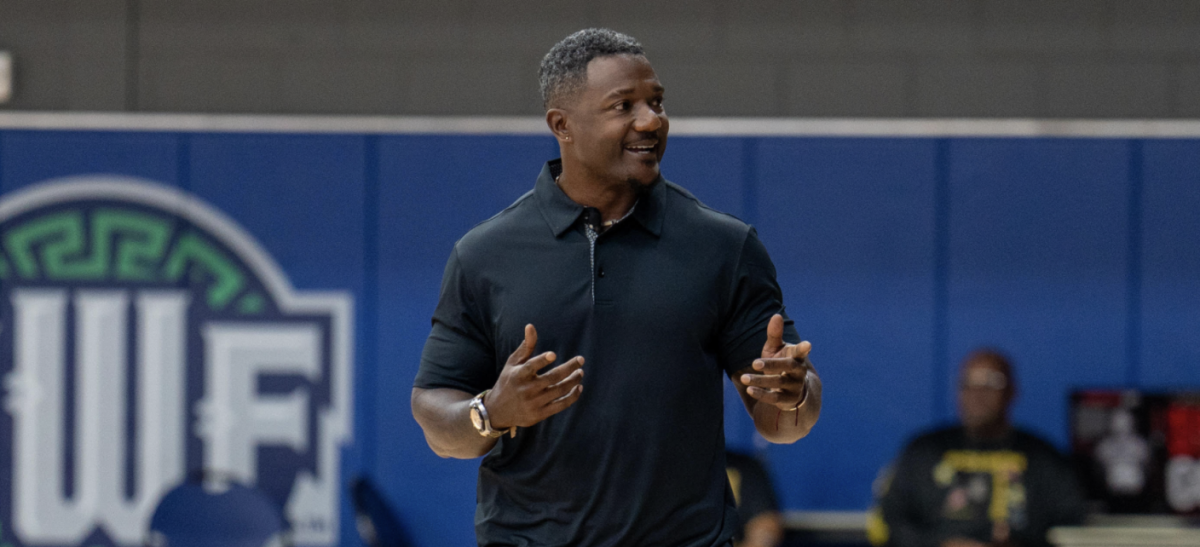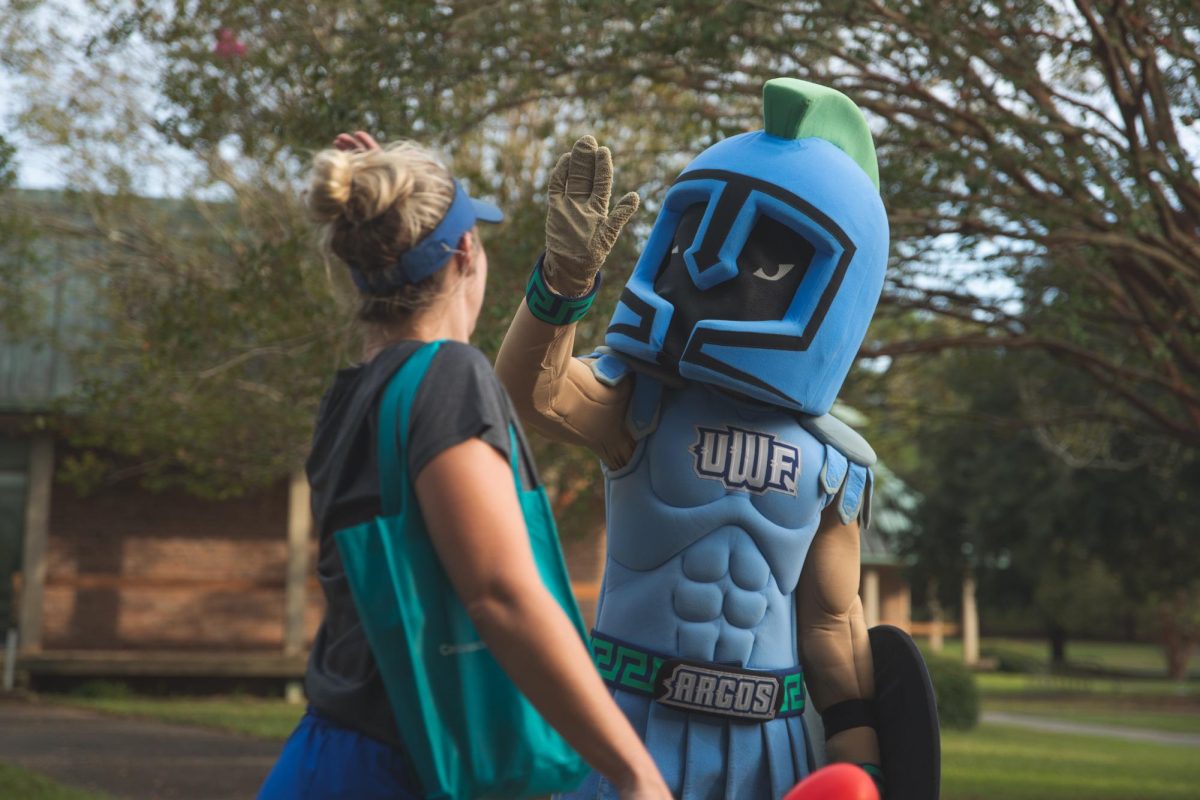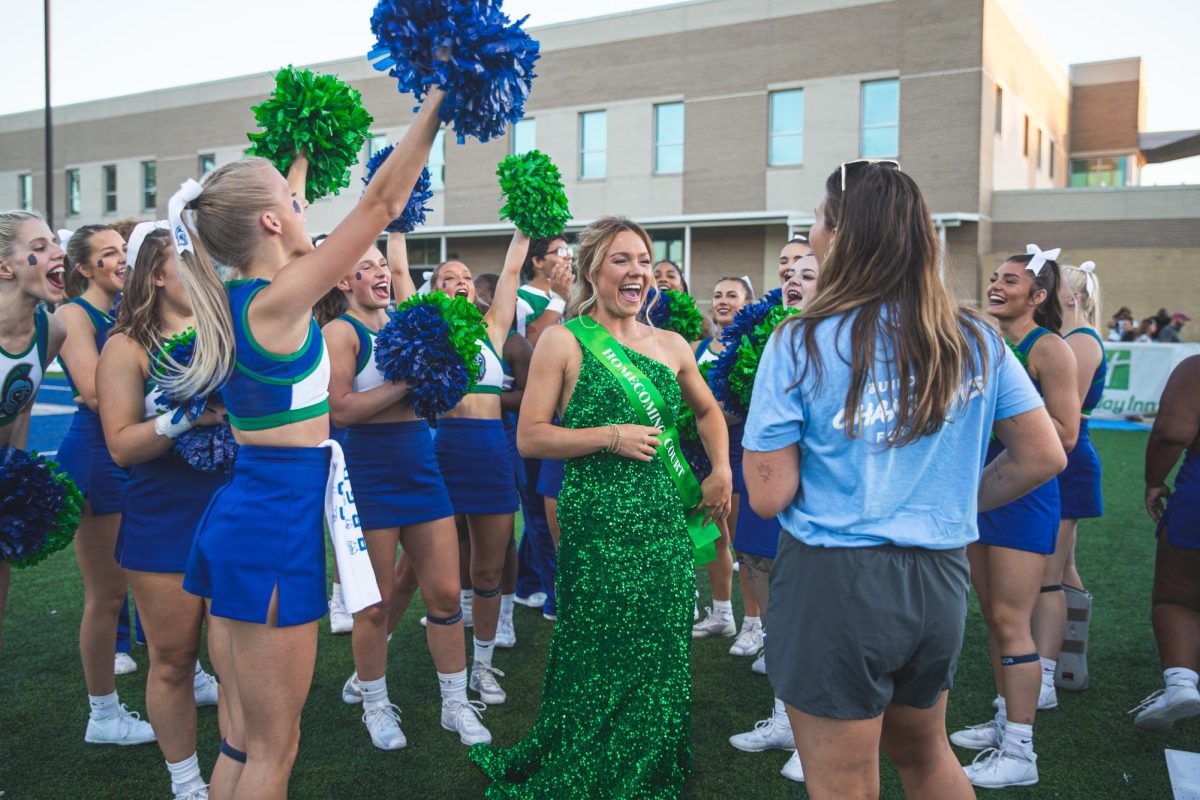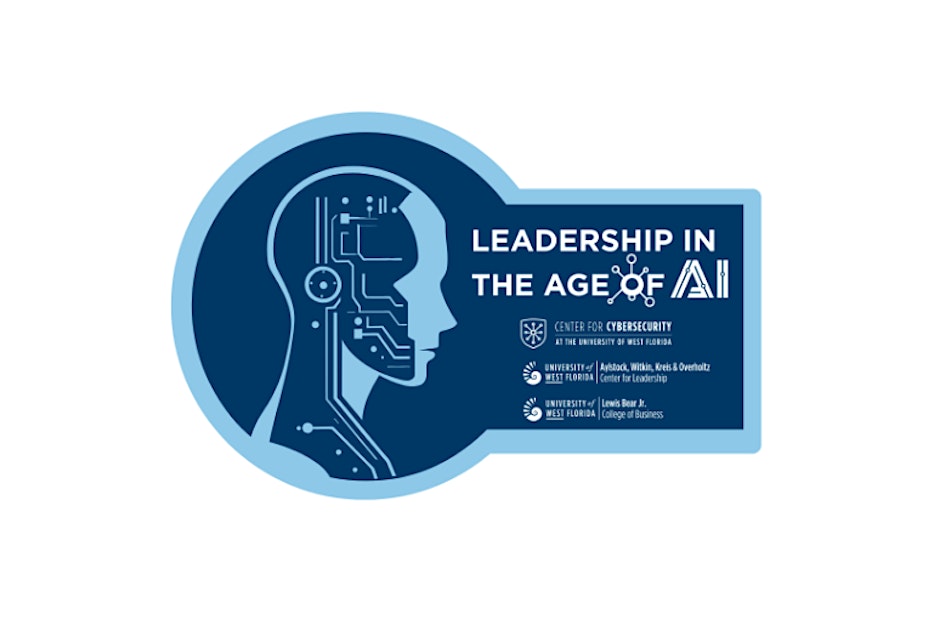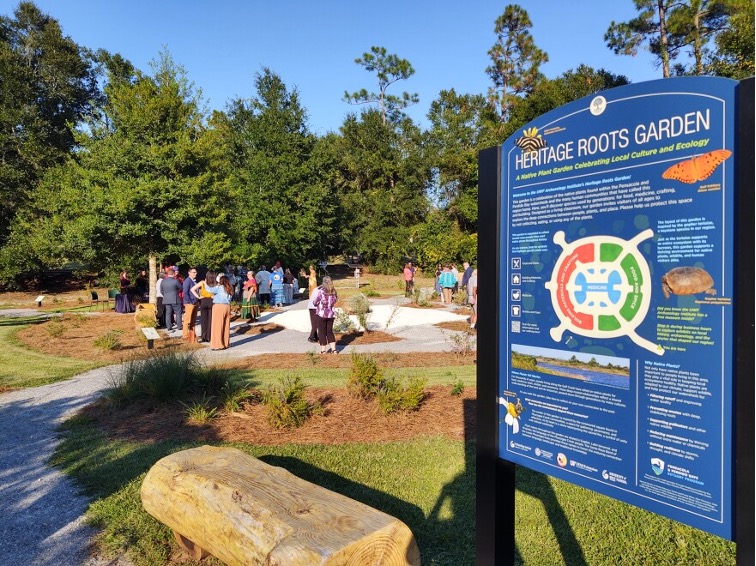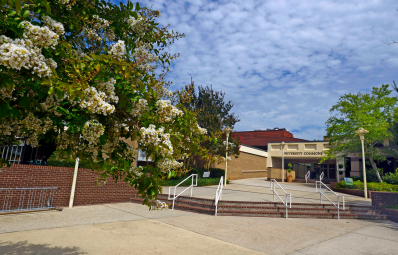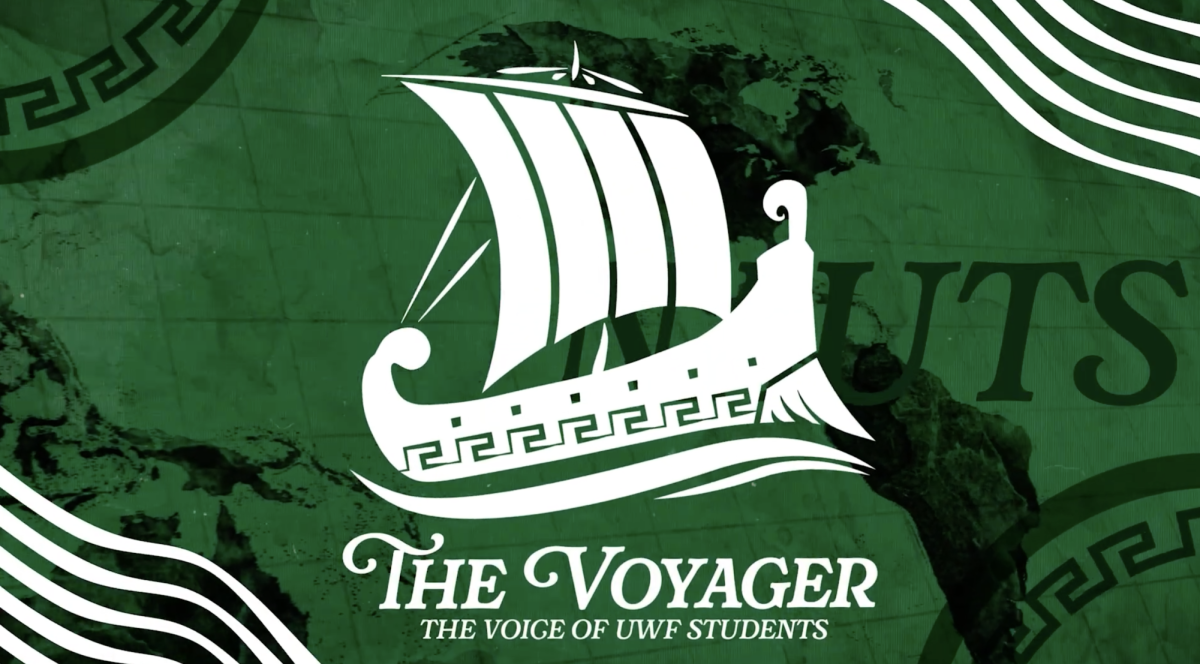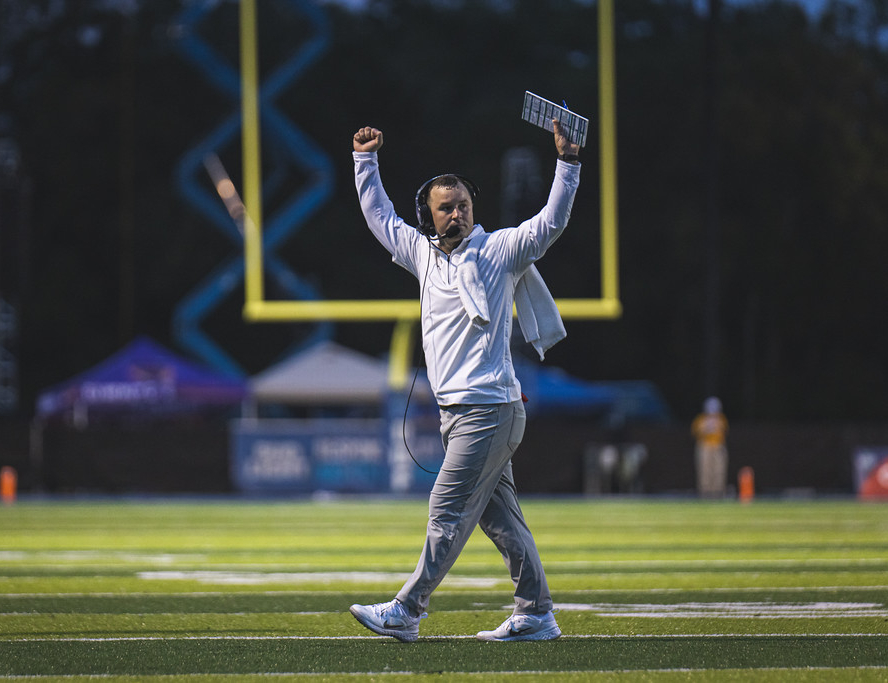By any definition, track legend and Pensacola’s own Justin Gatlin had a career filled to the brim with big moments on the world’s largest stages. However, when Gatlin spoke to a gathering of several hundred UWF athletes Friday, he revealed that his secret to these macro achievements was a commitment to the micro, especially in defeat.
During a more-than-two-hour visit to campus – the bulk of which featured Gatlin signing autographs, taking selfies and spending one-on-one time with as many UWF athletes, coaches, faculty and staff who hoped for a chat with the champ – Gatlin touched briefly on his numerous highs but delved deeper into the more challenging moments of his career.
Gatlin told the UWF audience that his response, and in some ways his lack of response, to those harrowing moments were important parts of
“Stay present. Don’t worry about a loss that happened last week or a week ago,” he said. “What’s the game plan like for this week? How are we going to be successful?”
Gatlin, who has recently released his first book, “Ready, Set, Go! From Grind to Glory,” rose to international fame thanks to his elite sprinting ability. A specialist in the 100 meters, he was a three-time Olympian and never competed in a games in which he did not earn an individual medal.
He won gold in the 2004 Athens games with a 9.85 in the 100, an Olympics in which he took bronze in the 200 and silver in the 4X100 relay.
In the 2012 London games, Gatlin was good for a bronze in the 100, then capped his Olympic career by gritting out a 100-meter silver in the 2016 Rio de Janiero games.
He was also known for his longevity, having remained a contender on the world stage right up to his retirement at the age of 40. Gatlin notched his personal best of 9.74 seconds, which anks fifth on the all-time in the 100, at the age of 33.
Gatlin spoke about these moments only briefly, focusing instead on the challenges he faced from 2015 and 2017.
It was during those years that the rivalry between Gatlin and the legendary Usain Bolt was at it’s hottest, but also when Gatlin found a new mental gear which propelled him to eventually shock casual viewers and anger a stadium full of Bolt supporters by winning the 2017 London worlds and depriving Bolt of finishing his career undefeated in international 100-meter races.
“Winning that race meant everything. I went through so much adversity, I went through so many naysayers. I went through the fact that people were doubting me, points where I doubted myself. It was a hard road to the top of that podium.”
Gatlin said his 2017 peak would not have happened without the valley that followed 2015, when he placed second by a heartbreaking one one-hundredth of a second to Bolt in the Beijing world championships. It was a moment made all the tougher by the fact that Gatlin had, up until that race, been posting the best 100 times in the sport.
“I beat myself,” Gatlin said to the UWF audience. “I trained so hard for that day physically that I forgot to train myself mentally and emotionally. I wasn’t there.”
Gatlin described the evolution of his personal ethos, what he calls his FAST method – short for focus, accountability, structure, and timing. It was this approach to training that Gatlin said allowed him to recapture the edge that was required to knock off the previously unbeatable Bolt.
And it’s a method he hopes will benefit the next generation of athletes.
“That’s what we are really talking about,” Gatlin said. “Learning how to overcome adversity. Learning how to navigate yourself.”

